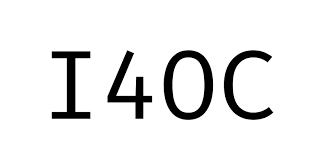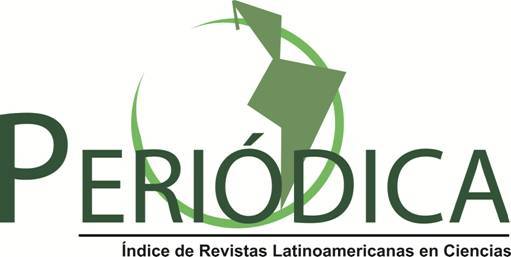The importance of the bioactive compounds of avocado fruit (Persea americana Mill) on human health
DOI:
https://doi.org/10.18633/biotecnia.v21i3.1047Palabras clave:
Nutrients, Phytochemicals, Antioxidants, Nutraceutical, Disease preventionResumen
Mexico is the largest producer, exporter and consumer of avocados (Persea americana Mill) in the world. The demand for this fruit in some non-producing countries is currently high. The main motivation for this fruit’s consumption is its exquisite taste and pleasant texture. However, recent research has suggested that this fruit can exert protective effects on human health, as empirically determined centuries ago by the inhabitants of pre-Hispanic Mexico. These effects have been attributed to the high content of health-related compounds, including unsaturated fatty acids, acetogenins, phytosterols, tocopherols, tocotrienols, carotenoids, chlorophylls, phenols, organic acids and sugars of seven carbons. Avocado is one of the few fruits in the human diet with a high content of both water-soluble and fat-soluble health-related compounds. The main protective effects attributed to avocados include the prevention of cardiovascular diseases, diabetes and some forms of cancer, which are diseases considered in many countries as public health problems. Unfortunately, there is little research demonstrating the protective effects of avocados on human health. The aim of this work was the systematical analysis of the health-protective effects, both objectively regarded to avocado fruit, as well as those inferred from the avocado chemical composition.Descargas
Citas
Ashton, O.B.O., Wong, M., McGhie, T.K., Vather, R., Wang, Y., Requejo-Jackman, C., Ramankutty, P. and Woolf, A.B. 2006. Pigments in avocado tissue and oil. Journal of Agricultural and Food Chemistry. 54: 10151-10158.
Berasategi, I., Barriuso, B., Ansorena, D. and Astiasarán, I. 2012. Stability of avocado oil during heating: Comparative study to olive oil. Food Chemistry. 132: 439-446.
Bernstein, A.M., Roizen, M.F. and Martinez, L. 2014. Purified palmitoleic acid for the reduction of high-sensitivity C-reactive protein and serum lipids: A double-blinded, randomized, placebo controlled study. Journal of Clinical Lipidology. 8: 612-617.
Bertling, I., Tesfay, S. and Bower, J. 2007. Antioxidants in ‘Hass’ avocado. South African Avocado Growers’ Association Yearbook. 30: 17-19.
Bin Sayeed, M.S., Karim, S.M.R., Sharmin, T. and Morshed, M.M. 2016. Critical analysis on characterization, systemic effect, and therapeutic potential of beta-sitosterol: a plant-derived orphan phytosterol. Medicines. 3: 29.
Blakey, R.J., Tesfay, S.Z., Bertling, I. and Bower, J.P. 2012. Changes in sugars, total protein, and oil in ‘Hass’ avocado (Persea americana Mill.) fruit during ripening. The Journal of Horticultural Science and Biotechnology. 87: 381-387.
Board, M., Colquhoun, A. and Newsholme, E.A. 1995. High Km glucose-phosphorylating (glucokinase) activities in a range of tumor cell lines and inhibition of rates of tumor growth by the specific enzyme inhibitor mannoheptulose. Cancer Research. 55: 3278-3285.
Cerretani, L., Lerma-García, M.J., Herrero-Martínez, J.M., Gallina- Toschi, T. and Simó-Alfonso, E. F. 2010. Determination of tocopherols and tocotrienols in vegetable oils by nanoliquid chromatography with ultraviolet−visible detection using a silica monolithic column. Journal of Agricultural and Food Chemistry. 58: 757-761.
Del Toro-Equihua, M., Velasco-Rodríguez, R., López-Ascencio, R. and Vásquez, C. 2016. Effect of an avocado oil-enhanced diet (Persea americana) on sucrose-induced insulin resistance in Wistar rats. Journal of Food and Drug Analysis. 24: 350-357.
Donnarumma, G., Buommino, E., Baroni, A., Auricchio, L., Filippis, A.D., Cozza, V., Msika, P., Piccardi, N. and Tufano, M.A. 2007. Effects of AV119, a natural sugar from avocado, on Malassezia furfur invasiveness and on the expression of HBD‐2 and cytokines in human keratinocytes. Experimental Dermatology. 16: 912-919.
Duester, K.C. 2001. Avocado fruit is a rich source of beta-sitosterol. Journal of The American Dietetic Association. 101: 404-405.
Ferruzzi, M.G., and Blakeslee, J. 2007. Digestion, absorption, and cancer preventative activity of dietary chlorophyll derivatives. Nutrition Research. 27: 1-12.
Havsteen B.H. 2002. The biochemistry and medical significance of the flavonoids. Pharmacology and Therapeutics. 96: 67- 202.
Hurtado-Fernández, E., Carrasco-Pancorbo, A. and Fernández- Gutiérrez, A. 2011. Profiling LC-DAD-ESI-TOF MS method for the determination of phenolic metabolites from avocado (Persea americana). Journal of Agricultural and Food Chemistry. 59: 2255-2267.
Hurtado-Fernández, E., Pacchiarotta, T., Mayboroda, O.A., Fernández-Gutiérrez A. and Carrasco-Pancorbo, A. 2014. Quantitative characterization of important metabolites of avocado fruit by gas chromatography coupled to different detectors (APCI-TOF MS and FID). Food Research International. 62: 801-811.
Liu, X., Sievert, J., Arpaia, M.L. and Madore, M.A. 2002. Postulated physiological roles of the seven-carbon sugars, mannoheptulose, and perseitol in avocado. Journal of the American Society for Horticultural Science. 127: 108-114.
López L.M.T. 2005. Fitoesteroles y fitoestanoles: su papel en la prevención cardiovascular. Offarm: Farmacia y Sociedad. 24: 90-94.
López-Cobo, A., Gómez-Caravaca, A.M., Pasini, F., Caboni, M.F., Segura-Carretero, A. and Fernández-Gutiérrez, A. 2016. HPLC-DAD-ESI-QTOF-MS and HPLC-FLD-MS as valuable tools for the determination of phenolic and other polar compounds in the edible part and by-products of avocado. LWT-Food Science and Technology. 73(Supplement C): 505- 513.
Lu, Q.-Y., Arteaga, J.R., Zhang, Q., Huerta, S., Go, V.L.W. and Heber, D. 2005. Inhibition of prostate cancer cell growth by an avocado extract: role of lipid-soluble bioactive substances. The Journal of Nutritional Biochemistry. 16: 23-30.
Mahadeva Rao, U., Ponnusamy, K., Naidu, J.R. and Sundaram, C.S. 2014. Modulatory influence of avocado on renal oxido-lipidemic stress and mRNA expression of NOS in renal artery studied in nephropathy induced rats. International Medical Journal. 21:1-7.
McClorry, S., Zavaleta, N., Llanos, A., Casapía, M., Lönnerdal, B. and Slupsky, C.M. 2018. Anemia in infancy is associated with alterations in systemic metabolism and microbial structure and function in a sex-specific manner: an observational study. The American Journal of Clinical Nutrition. 108: 1-11.
Meyer, M.D. and Terry, L.A. 2010. Fatty acid and sugar composition of avocado, cv. Hass, in response to treatment with an ethylene scavenger or 1-methylcyclopropene to extend storage life. Food Chemistry. 121: 1203-1210.
Meyer, M.D., Landahl, S., Donetti, M and Terry, L.A. 2011. 3 Avocado. In: Health-promoting Properties of Fruit and Vegetables. Terry L.A. (ed.), pp 27-50. CABI, United Kingdom.
Monika, P. and Geetha, A. 2015. The modulating effect of Persea americana fruit extract on the level of expression of fatty acid synthase complex, lipoprotein lipase, fibroblast growth factor-21 and leptin–a biochemical study in rats subjected to experimental hyperlipidemia and obesity. Phytomedicine. 22: 939-945.
Ornelas-Paz J.J., Yahia E.M. Gardea-Béjar A.A., Pérez-Martónez J.D., Ibarra-Junquera, V., Escalante-Minakata, M.P., Ruiz- Cruz S. and Ochoa-Reyes, E. 2012. Actividad antioxidante y protectora de selectos compuestos bioactivos de frutas y hortalizas. In: Antioxidantes en alimentos y salud. Álvarez Parrilla E., Gónzalez Aguilar G.A., de la Rosa L.A. y Ayala Zavala J.F. (eds.), pp 9-132. Clave editorial, México.
Ortiz-Avila, O., Gallegos-Corona, M.A., Sánchez-Briones, L.A., Calderón-Cortés, E., Montoya-Pérez, R., Rodríguez-Orozco, A.R., Campos-García, J., Saavedra-Molina, A., Mejía-Zepeda, R. and Cortés-Rojo, C. 2015a. Protective effects of dietary avocado oil on impaired electron transport chain function and exacerbated oxidative stress in liver mitochondria from diabetic rats. Journal of Bioenergetics and Biomembranes. 47: 337-353.
Ortiz-Avila, O., Esquivel-Martínez, M., Olmos-Orizaba, B.E., Saavedra-Molina, A., Rodríguez-Orozco, A.R., and Cortés- Rojo, C. 2015b. Avocado oil improves mitochondrial function and decreases oxidative stress in brain of diabetic rats. Journal of Diabetes Research. 2015: 485759.
Ortiz-Avila, O., Figueroa-García M.C., García-Berumen, C.I., Calderón-Cortés, E., Mejía-Barajas, J.A., Rodríguez-Orozco, A.R., Mejía-Zepeda, R., Saavedra-Molina, A. and Cortés- Rojo, C. 2017. Avocado oil induces long-term alleviation of oxidative damage in kidney mitochondria from type 2 diabetic rats by improving glutathione status. Journal of Bioenergetics and Biomembranes. 49: 205-214.
Pahua-Ramos, M.E., Garduño-Siciliano, L., Dorantes-Álvarez, L., Chamorro-Cevallos, G., Herrera-Martínez, J., Osorio-Esquivel, O. and Ortiz-Moreno, A. 2014. Reduced-calorie avocado paste attenuates metabolic factors associated with a hypercholesterolemic-high fructose diet in rats. Plant Foods Human Nutrition. 69: 18-24.
Pieterse, Z., Jerling, J.C., Oosthuizen, W., Kruger, H.S., Hanekom, S.M., Smuts, C.M. and Schutte, A. E. 2005. Substitution of high monounsaturated fatty acid avocado for mixed dietary fats during an energy-restricted diet: effects on weight loss, serum lipids, fibrinogen, and vascular function. Nutrition. 21: 67-75.
Piironen, V., Toivo, J., Puupponen-Pimiä, R. and Lampi, A.-M. 2003. Plant sterols in vegetables, fruits and berries. Journal of the Science of Food and Agriculture. 83: 330-337.
Rao, U.M. and Adinew, B. 2011. Remnant B-cell-stimulative and anti-oxidant effects of Persea americana fruit extract studied in rats introduced into streptzotocin-induced hyperglycaemic state. African Journal of Traditional, Complementary and Alternative Medicines. 8: 210-217.
Rodríguez-López, C.E., Hernández-Brenes, C. and de la Garza, R.I.D. 2015. A targeted metabolomics approach to characterize acetogenin profiles in avocado fruit (Persea americana Mill). Royal Society of Chemistry Advances. 5: 106019-106029.
Rodríguez-López, C.E., Hernández-Brenes, C., Treviño, V. and de la Garza, R.I.D. 2017. Avocado fruit maturation and ripening: dynamics of aliphatic acetogenins and lipidomic profiles from mesocarp, idioblasts and seed. BioMed Central Plant Biology. 17: 159.
Rodríguez-Sánchez, D.G., Flores-García, M., Silva-Platas, C., Rizzo, S., Torre-Amione, G., De la Peña-Diaz, A. Hernández- Brenes, C. and García-Rivas, G. 2015. Isolation and chemical identification of lipid derivatives from avocado (Persea americana) pulp with antiplatelet and antithrombotic activities. Food & Function. 6: 192-202.
Sabaté, J., Wien, M. and Haddad, E. 2015. Post-ingestive effects of avocados in meals on satiety and gastric hormone blood levels. Human Health Nutrition. 459-461.
Saeidnia, S., Manayi, A., Gohari, A.R. and Abdollahi, M. 2014. The story of beta-sitosterol-a review. European Journal of Medicinal Plants. 4: 590-609.
Saini, R.K., and Keum, Y.S. 2016. Tocopherols and tocotrienols in plants and their products: A review on methods of extraction, chromatographic separation, and detection. Food Research International. 82: 59-70.
Salonen, R.M., Nyyssönen, K., Kaikkonen, J., Porkkala-Sarataho, E., Voutilainen, S., Rissanen, T.H., Tuomainen, T.P., Valkonen, V.P., Ristonmaa, U. and Lakka, H.M. 2003. Six-year effect of combined vitamin C and E supplementation on atherosclerotic progression. Circulation. 107: 947-953.
Saraswat, K., and Rizvi, S.I. 2017. Novel strategies for anti-aging drug discovery. Expert Opinion on Drug Discovery. 12: 955- 966.
Scott, T.M., Rasmussen, H.M., Chen, O. and Johnson, E.J. 2017. Avocado consumption increases macular pigment density in older adults: a randomized, controlled trial. Nutrients. 9: 919.
Tabeshpour, J., Razavi, B.M., Hosseinzadeh, H. 2017. Effects of Avocado (Persea americana) on metabolic syndrome: a comprehensive systematic review. Phytotherapy Research. 31: 819-837.
Tan, C.X., Chong, G.H., Hamzah, H. and Ghazali, H.M. 2018. Hypocholesterolaemic and hepatoprotective effects of virgin avocado oil in diet‐induced hypercholesterolaemia rats. International Journal of Food Science and Technology. 53: 2706-2713.
Terés, S., Barceló-Coblijn, G., Benet, M., Alvarez, R., Bressani, R., Halver, J.E. and Escriba, P.V. 2008. Oleic acid content is responsible for the reduction in blood pressure induced by olive oil. Proceedings of the National Academy of Sciences. 105: 13811-13816.
Thenmozhi, A., Shanmugasundaram, C. and Rao, U.M. 2012. Biochemical evaluation of anti-diabetic phytomolecule through bioactivity guided solvent fractionation and subfractionation from hydromethanolic (2:3) extract of Alligator pear Fruit in streptozotocin induced diabetic rats. Journal of Applied Pharmaceutical Science. 2: 61-69.
Unlu, N.Z., Bohn, T., Clinton, S.K. and Schwartz, S.J. 2005. Carotenoid absorption from salad and salsa by humans is enhanced by the addition of avocado or avocado oil. The Journal of Nutrition. 135: 431-436.
Viktora, J.K., Johnson, B.F., Penhos, J.C., Rosenberg, C.A. and Wolff, F.W. 1969. Effect of ingested mannoheptulose in animals and man. Metabolism-Clinical and Experimental. 18: 87-102.
Villa-Rodríguez, J.A., Molina-Corral, F.J., Ayala-Zavala, J.F., Olivas, G.I. and González-Aguilar, G.A. 2011. Effect of maturity stage on the content of fatty acids and antioxidant activity of ‘Hass’ avocado. Food Research International. 44: 1231-1237.
Wang, W., Bostic, T.R. and Gu, L. 2010. Antioxidant capacities, procyanidins and pigments in avocados of different strains and cultivars. Food Chemistry. 122: 1193-1198.
Wang L., Bordi P.L., Fleming, J.A., Hill, A.M. and Kris-Etherton, P.M. 2015. Effect of a moderate fat diet with and without avocados on lipoprotein particle number, size and subclasses in overweight and obese adults: a randomized, controlled trial. Journal American Heart Association. 4: e001355.
Yahia, E.M. and Ornelas-Paz, J.D.J. 2010. Chemistry, stability and biological actions of carotenoids. In: Fruit and Vegetable Phytochemicals: Chemistry, Nutritional Value, and Stability. L.A. de la Rosa, E. Alvarez-Parrilla, and G.A. González-Aguilar (Eds.), pp 177-222. Blackwell Publishing, United States.
Yahia, E.M. and Woolf, A.B. 2011. Avocado (Persea Americana Mill.). In: Postharvest biology and technology of tropical and subtropical fruits, Vol 2. E.M. Yahia (ed.), pp 125-186. Woodhead Publishing. Oxford, England.
Yang, Z.H., Miyahara, H. and Hatanaka, A. 2011. Chronic administration of palmitoleic acid reduces insulin resistance and hepatic lipid accumulation in KK-A y Mice with genetic type 2 diabetes. Lipids in Health and Disease. 10: 120.
Descargas
Publicado
Cómo citar
Número
Sección
Licencia
La revista Biotecnia se encuentra bajo la licencia Atribución-NoComercial-CompartirIgual 4.0 Internacional (CC BY-NC-SA 4.0)
















_(2).jpg)








